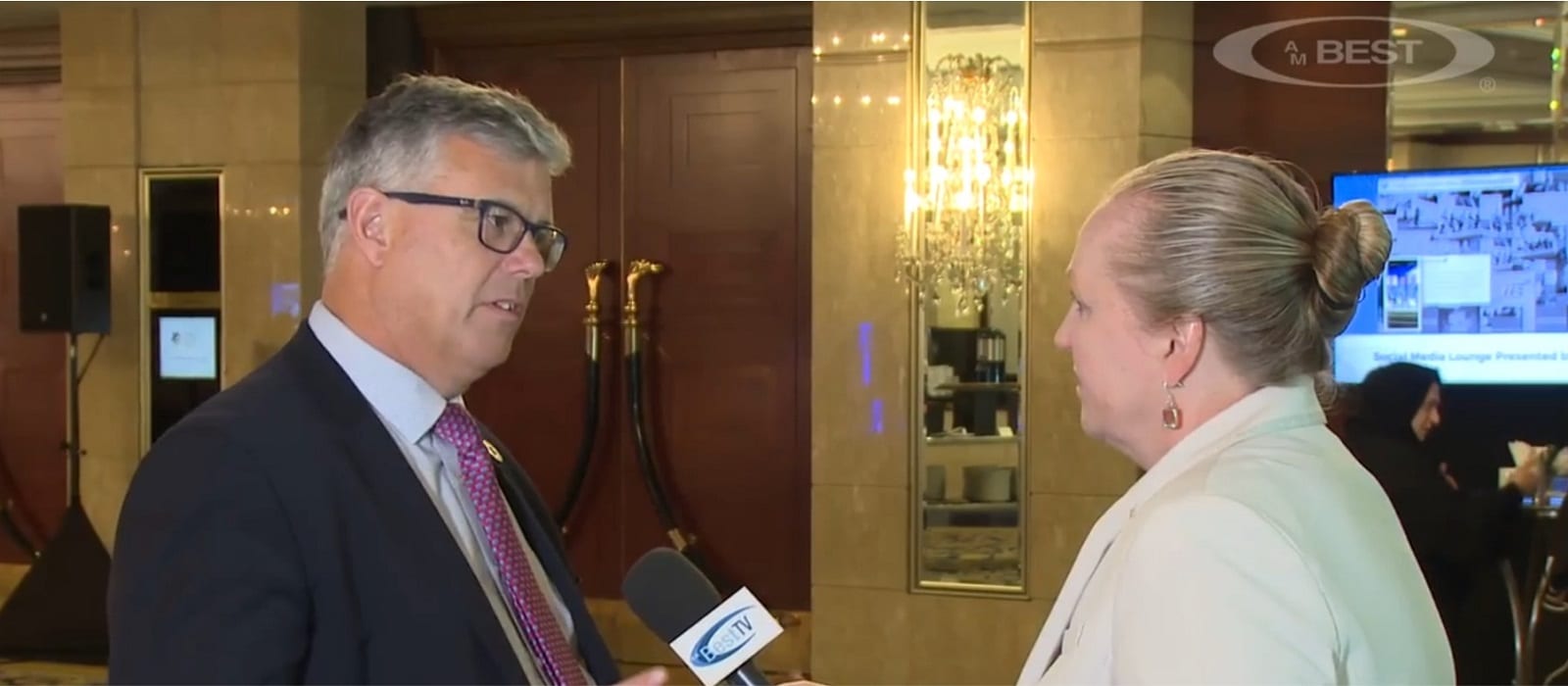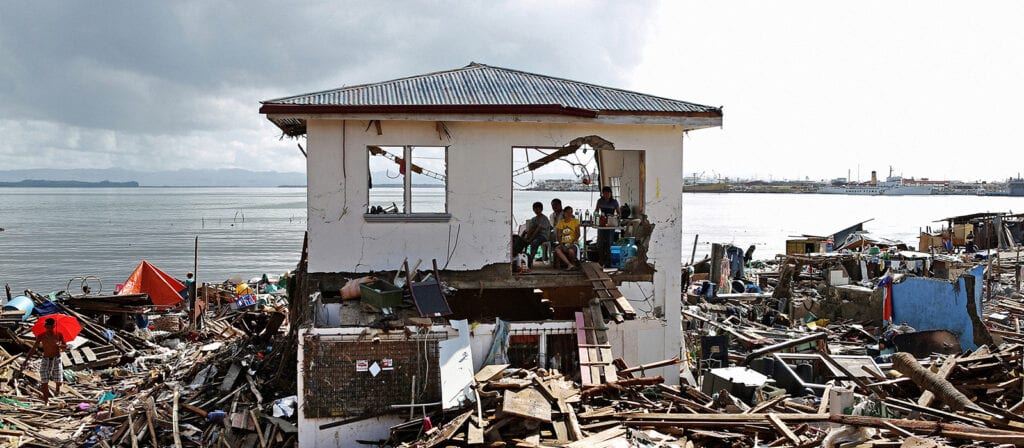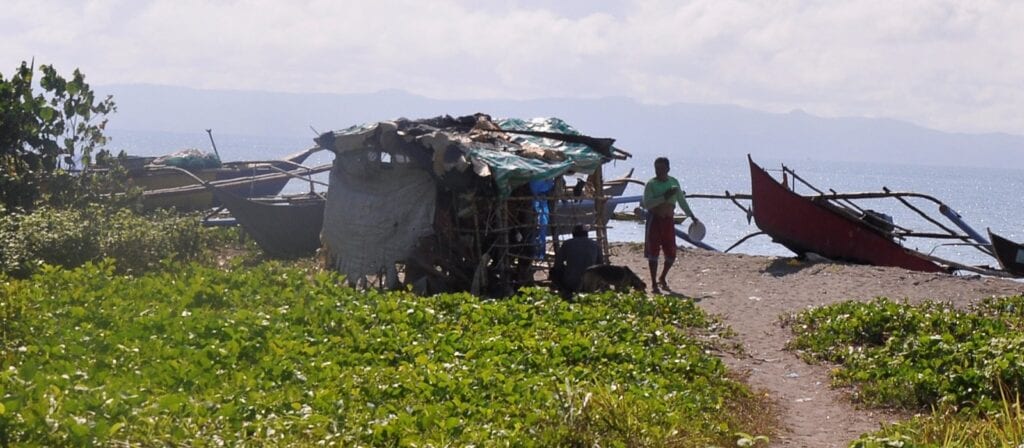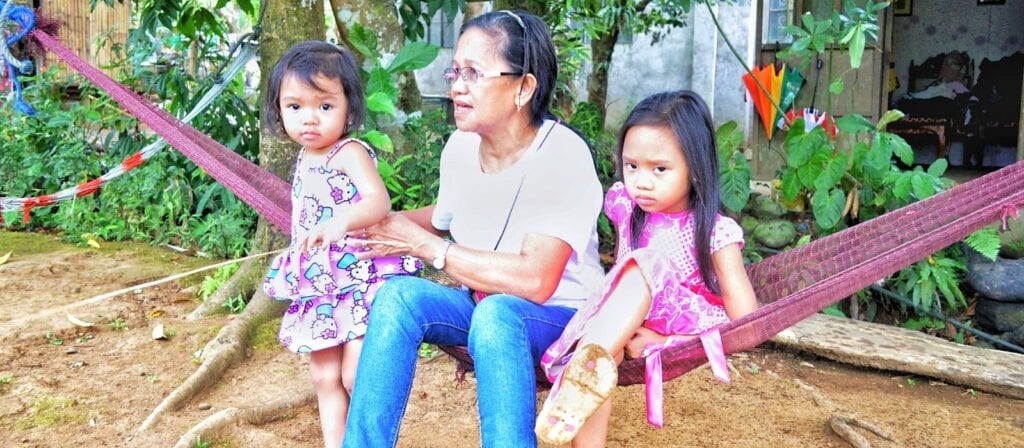Shaun Tarbuck, Chief Executive at the International Cooperative and Mutual Insurance Federation (ICMIF), was interviewed last week by AM Best TV at the International Insurance Society (IIS) Global Forum in Singapore. The interview took place on Friday 24 June after the launch of a new report entitled Mutual microinsurance and the Sustainable Development Goals: An impact assessment after Typhoon Haiyan published by the University of Cambridge Institute for Sustainability Leadership.
In the interview Tarbuck expressed his wish to see more nations allow mutual insurance (and microinsurance) as currently 45% of the world’s countries do not permit this model to operate.
The study from University of Cambridge Institute for Sustainability Leadership has, for the first time, analysed how mutual microinsurance, a community-owned model of insurance, contributes to the recovery of low-income households following a natural disaster. The report, looking at mutual microinsurance through the lens of the United Nations Sustainable Development Goals (SDGs), indicates greater resilience for those households covered by mutual microinsurance than those without.
Speaking about the significance of the report, Tarbuck said: “The report is significant because it is the first time that an external organization has really looked at a mutual microinsurer. That has changed the thought processes around how microinsurance should work”.
The report features ICMIF member Card MBA (the Philippines) which started operations 20 years ago and which now provides microinsurance cover for 20 million of the population, 35% of whom currently live below the poverty line. The organisation plans to extend cover to 40 million over the course of the next five years which would be 40% of the population of the Philippines.
Speaking about the success of Card MBA, Tarbuck said; “It’s quite outstanding as to how it’s grown. It’s grown organically. It’s grown with the communities for the communities. It really is a true community-based organization. The strength of the communities comes from the fact that they try and make their lives resilient by helping each other out.
“This is the true purpose of microinsurance in its raw state, how do you educate, empower, and then provide and co-create risk pools that enable people to help each other when times are hard that stop them slipping back into poverty,” Tarbuck continued.
Tarbuck commended the work put in by the people within Card MBA with communities throughout the whole of the Philippines. The CISL report demonstrates that Card MBA puts a huge amount back into the local communities through what they refer to as social investment, a fairly colossal amount given the small scale of the organisation.
Tarbuck praised the findings of the report and, in particular, the way that Card MBA links all their successes and their goals back to the United Nations Sustainable Development Goals (SDGs). Their work impacts ten of the Goals.
The lessons from the CISL report, according to Tarbuck, are that the model that Card MBA operates is one that should be replicated elsewhere following its proven success. There are challenges with this though he acknowledged, particularly due to the fact that many countries do not have regulation that allows mutual to operate. Card MBA, through the development part of their business, Rimansi, is trying to enter Laos, Cambodia, Myanmar, and Indonesia but this is very difficult when there’s no regulation and no will from the governments to want to try and allow this to happen.
Recent research by ICMIF found that 45% of the world’s countries do not allow mutual microinsurance to be set up. Tarbuck did note, however, some success stories in recent years. This includes China which issued a new law two years ago allowing mutual insurance and there are now three new mutual insurers in China. In 2019, Estonia, Romania, and South Africa have all introduced new mutual microinsurance laws. Tarbuck also highlighted the fact that Catherine Hock, Vice-President International Relations, ICMIF will be one of the keynote speakers at the “Insurance in Azerbaijan: Trends & Opportunities” Conference on 28 June in Baku. He expressed his hope that this would lead to the introduction of mutual insurance in Azerbaijan soon.
Tarbuck also expressed his desire to see more insurers and microinsurers have a focus on achieving and reporting on the Sustainable Development Goals. He estimated that around 20% of ICMIF members are currently embedding the Goals into their strategy and reporting back on the successes.
The interview with Shaun Tarbuck by AM Best TV can be viewed here.
Other IIS Global Forum interviews from AM Best TV:






